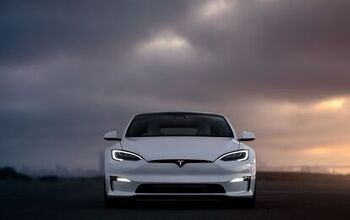Another One: FedEx Vows to Become Carbon Neutral by 2040

FedEx had kneeled before mankind, vowing to become a carbon-neutral business by 2040. That’s roughly eight years longer than it’ll probably take most of the population to forget that the promise was ever made. But this is the way of the world and we wager it won’t be long before it’s just easier to list the companies and governments that have not made informal, often empty commitments about the environment.
But, before we throw FedEx into the camp of blatant placation, let’s see what it actually has planned.
Everything else requires a bit more imagination, though a few might actually yield better environmental results than blowing a bunch of cash on EVs. One of our favorites is its plan to work with customers to bolster supply chain sustainability. Most of this is being done via carbon-neutral shipping options and new packaging solutions and seems like an easy enough (and immediate) way to help mitigate wastefulness.
FedEx also plans on investing in sustainable fuels for aircraft and trucks, deploying new forms of fleet monitoring (sky and ground-based) targeting fuel savings, and reconfiguring its facilities to use less energy. There’s even a plan to fund the Yale Center ($100 million) in researching Natural Carbon Capture methods.
“While we’ve made great strides in reducing our environmental impact, we have to do more. The long-term health of our industry is directly linked to the health of the planet, but this effort is about more than the bottom line – it’s the right thing to do,” Mitch Jackson, Chief Sustainability Officer, FedEx, stated. “At FedEx, we are committed to connecting people and possibilities resourcefully and responsibly. The steps we are taking today will contribute a positive impact for generations to come.”
The company has already committed itself to spend $2 billion toward its greener visions but we still think the publicity this kind of investment offers is probably worth more than whatever fruit it manages to yield. As a byproduct, it may also help keep FedEx from falling behind when and if widespread electrification becomes more feasible.
“We have a responsibility to take bold action in addressing climate challenges,” explained Frederick W. Smith, Chairman and CEO, FedEx Corp. “This goal builds on our longstanding commitment to sustainability throughout our operations, while at the same time investing in long-term, transformational solutions for FedEx and our entire industry.”
Be sure to check back in 20 years to see how that worked out.
[Image: FedEx]

A staunch consumer advocate tracking industry trends and regulation. Before joining TTAC, Matt spent a decade working for marketing and research firms based in NYC. Clients included several of the world’s largest automakers, global tire brands, and aftermarket part suppliers. Dissatisfied with the corporate world and resentful of having to wear suits everyday, he pivoted to writing about cars. Since then, that man has become an ardent supporter of the right-to-repair movement, been interviewed on the auto industry by national radio broadcasts, driven more rental cars than anyone ever should, participated in amateur rallying events, and received the requisite minimum training as sanctioned by the SCCA. Handy with a wrench, Matt grew up surrounded by Detroit auto workers and managed to get a pizza delivery job before he was legally eligible. He later found himself driving box trucks through Manhattan, guaranteeing future sympathy for actual truckers. He continues to conduct research pertaining to the automotive sector as an independent contractor and has since moved back to his native Michigan, closer to where the cars are born. A contrarian, Matt claims to prefer understeer — stating that front and all-wheel drive vehicles cater best to his driving style.
More by Matt Posky
Latest Car Reviews
Read moreLatest Product Reviews
Read moreRecent Comments
- Chelsea I actually used to work for this guy
- SaulTigh Saw my first Cybertruck last weekend. Looked like a kit car...not an even panel to be seen.
- GregLocock Bear in mind this is purely a branding exercise and has no significant input from AM. Buying one of these is like buying a Pink Floyd T shirt, no Dave and Nick didn't personally sew it up for you.
- Lou_BC This is the sort of thing that lands 15 billion dollar Honda investments in Canada. One political party tries to undo everything the other one has done.
- Ajla "Mr Musk needs to go" "should not be CEO anymore."It isn't exactly easy getting rid of someone that owns 20.5% of the company (likely 25% by year's end), is one of the wealthiest people on Earth and has a giant media presence. Elon's only stepping down if he or God makes the decision.


































Comments
Join the conversation
Why EV van cannot cover 300 miles on one charge per day?
I read somewhere that the cheapest solution to greenhouse gasses is to plant billions of trees. I kinda like the slogan, "More trees. Less Azzholes."